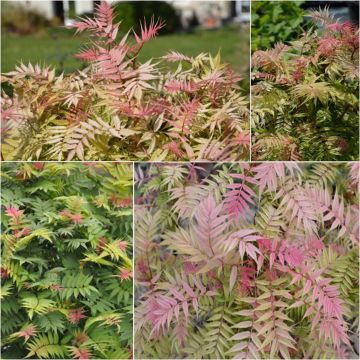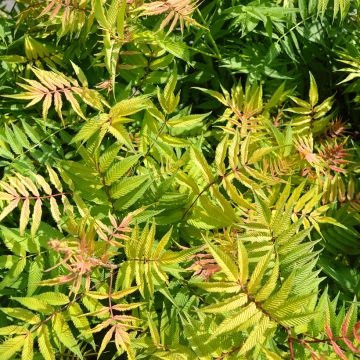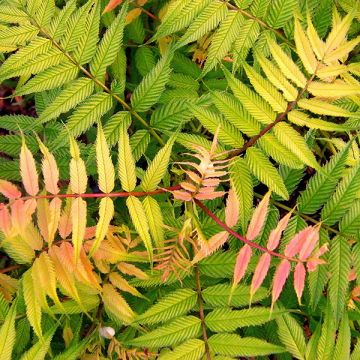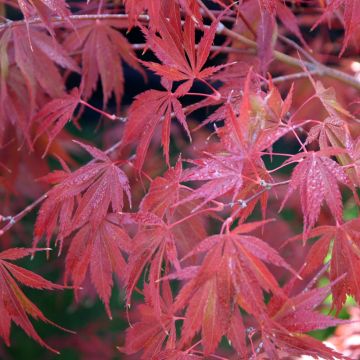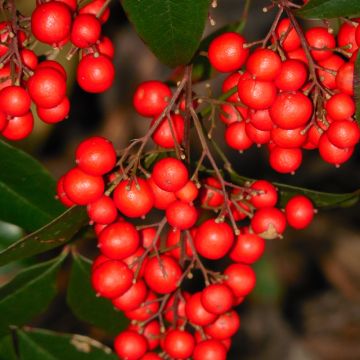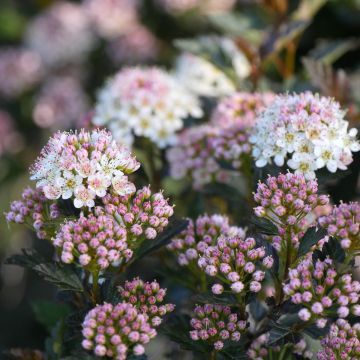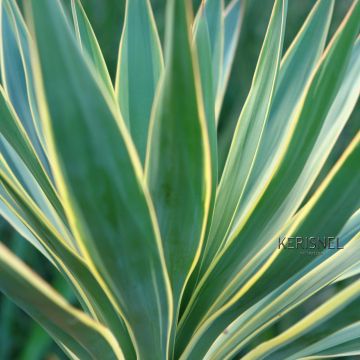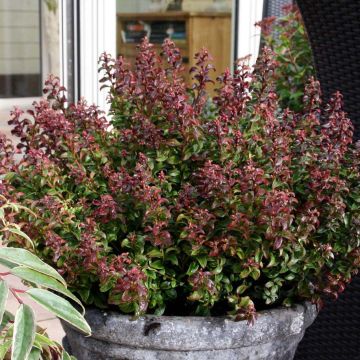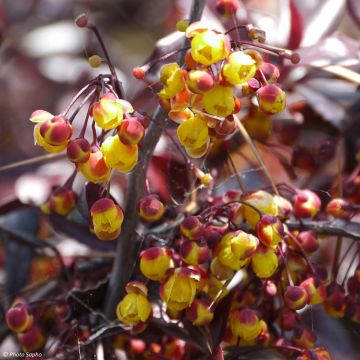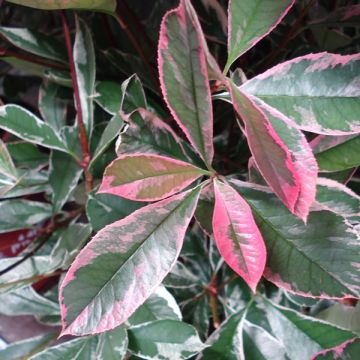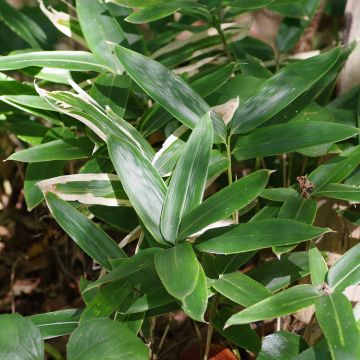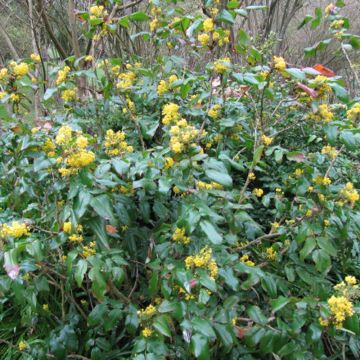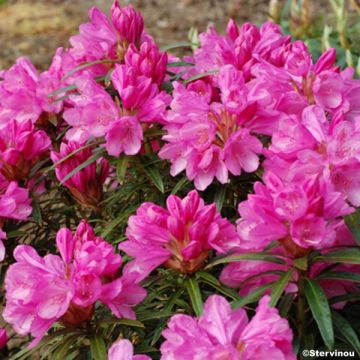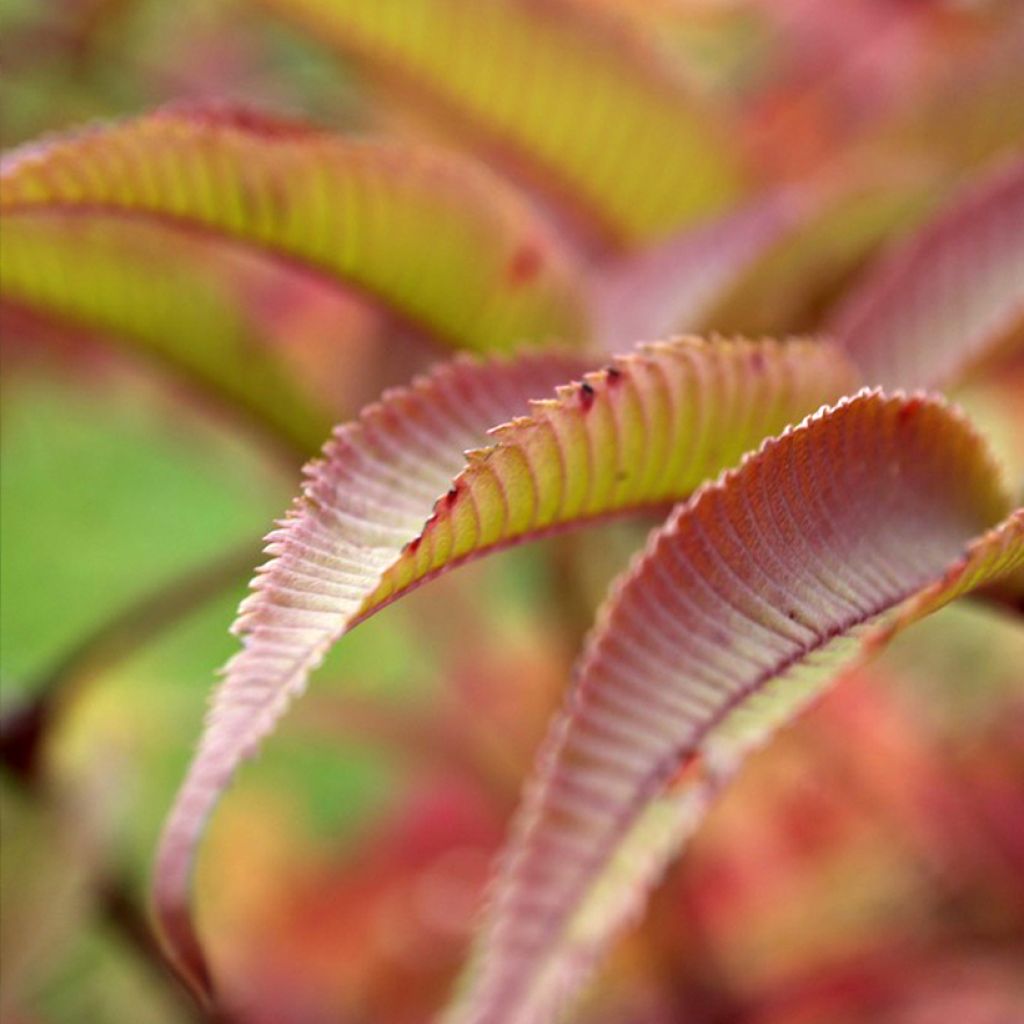

Sorbaria tomentosa Stick & Feathers - Sorbaire tomenteuse
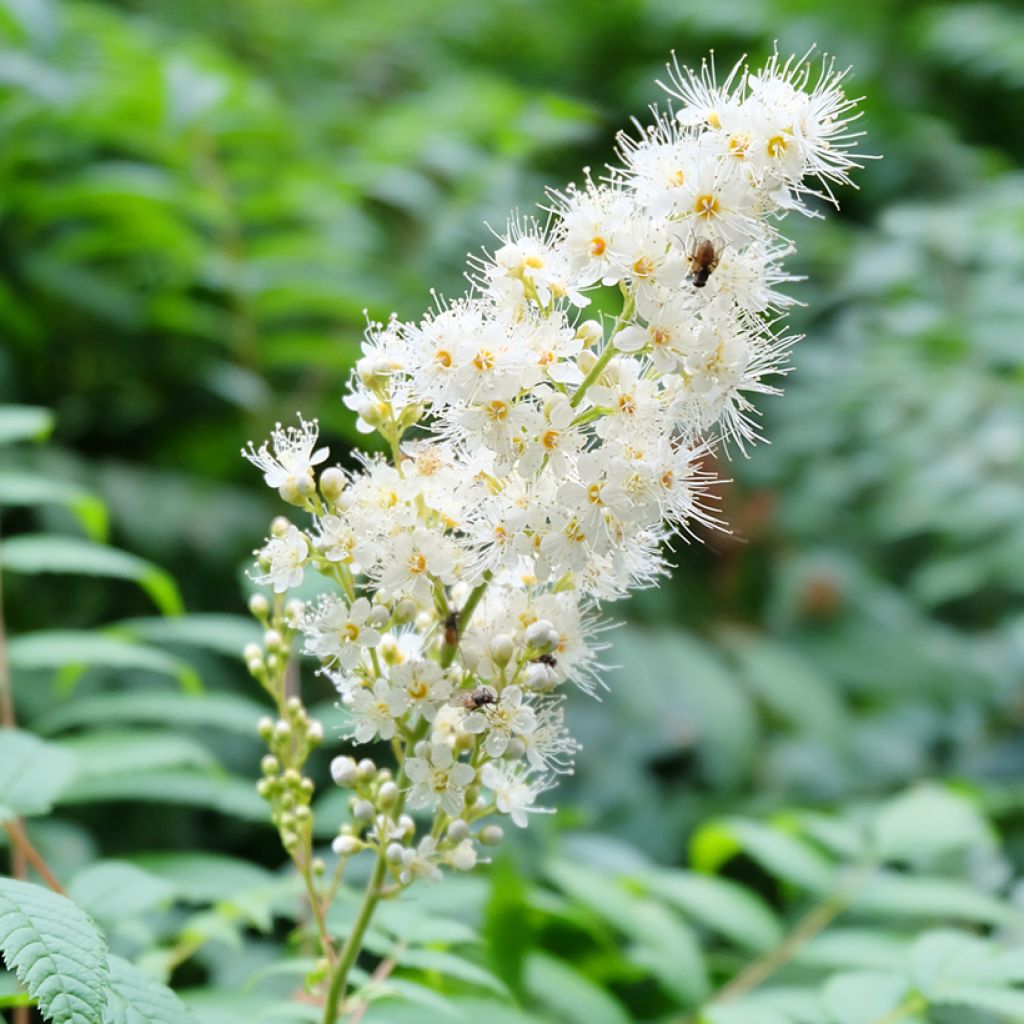

Sorbaria tomentosa Stick & Feathers - Sorbaire tomenteuse
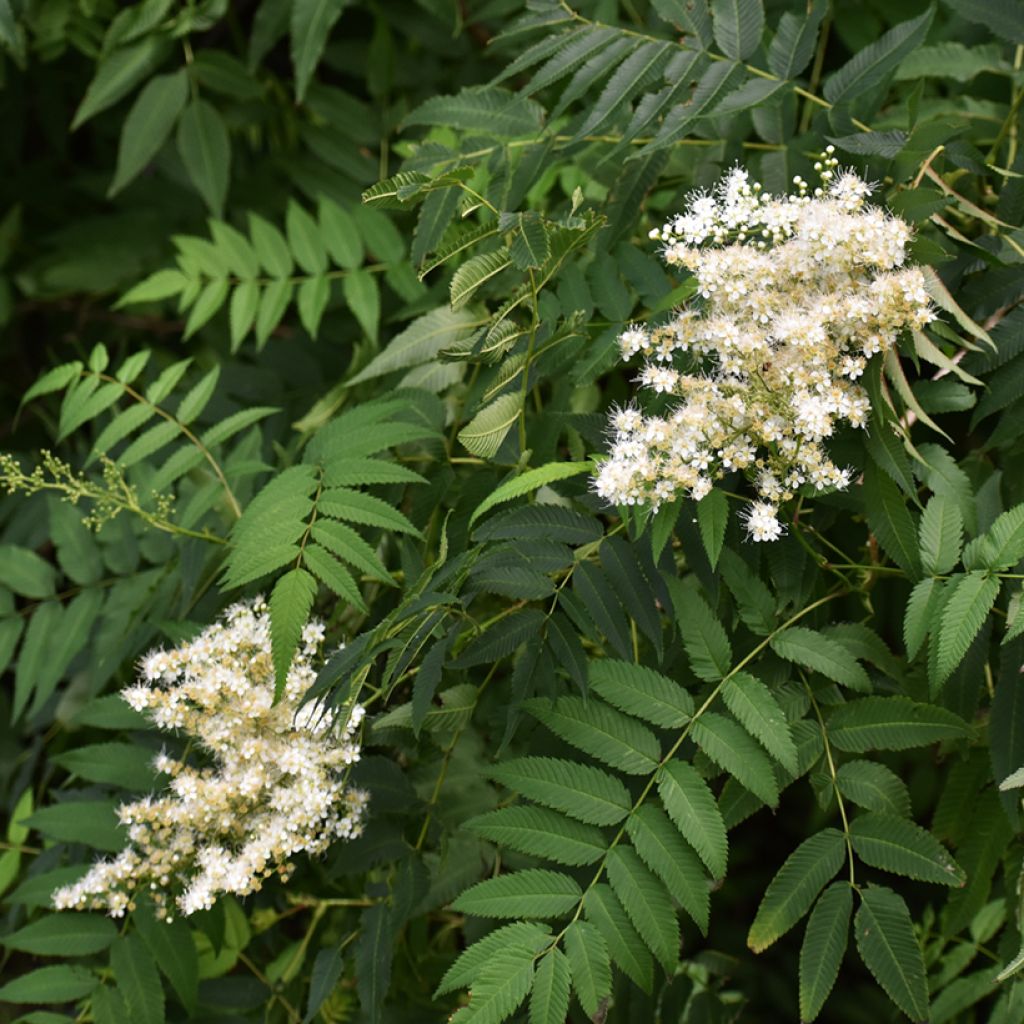

Sorbaria tomentosa Stick & Feathers - Sorbaire tomenteuse
Sorbaria tomentosa subsp. angustifolia Stick & Feathers
Sorbaria tomentosa subsp. angustifolia Stick & Feathers
Narrow-leaved Himalayan Sorbaria
Why not try an alternative variety in stock?
View all →This plant carries a 24 months recovery warranty
More information
We guarantee the quality of our plants for a full growing cycle, and will replace at our expense any plant that fails to recover under normal climatic and planting conditions.
From €5.90 for pickup delivery and €6.90 for home delivery
Express home delivery from €8.90.
Does this plant fit my garden?
Set up your Plantfit profile →
Description
The Sorbaria tomentosa var angustifolia 'Stick & Feathers' is a variety of tomentose sorbaria or Kashmir false spirea with narrow leaves selected for its fabulous autumn colours. Smaller in size than the wild species with a broad and flexible growth habit, this bush with fern-like leaves also offers a summer flowering in large white and frothy panicles while being lightweight. From its Himalayan ancestor, 'Stick & Feathers' has retained its ease of cultivation. Less prone to suckering, this variety is better suited to our gardens. It would be ideal for the centre of a perennial bed or at the front of a shrub bed, growing in clay and slightly chalky soils.
The tomentose sorbaria 'Stick & Feathers' is a horticultural variety derived from the Sorbaria tomentosa var. angustifolia, a deciduous bush from the Rosaceae family. It is native to the mountains of Afghanistan and Kashmir. The cultivar 'Stick & Feathers' suckers less and has a more moderate growth and remarkable autumn colours. The relatively rapid-growth bush will reach a height of about 2.50 m (8ft). It produces a few suckers from its base, allowing it to spread. The whole will form a thicket about 2 m (7ft) wide. This false spirea has a graceful habit, both spreading and bushy. The primary asset of this bush is its foliage, for two reasons: its pinnate, finely cut nature, but also and above all, the flamboyant palette of colours it adorns itself with in autumn. The frost-resistant young shoots, up to -3°C (26.6°F), emerge in March, more or less tinged with red. The foliage is light to medium green in summer. Flowering occurs in June-July in opulent pyramidal panicles of small creamy white flowers with a soft and fluffy appearance. The foliage is absent in winter.
The Stick & Feathers false spirea is a charming bush, comfortable in any good garden soil. It will find its place among large shrubs and robust, tall perennials. It pairs fabulously with a purple barberry. Ideal in small gardens, breaking the monotony of more classic foliage. To accompany it, choose a deciduous ceanothus with blue or pink summer flowers, a butterfly bush or small lilacs. Its autumn colours will blend well with those of the compact winged euonymus or smoke trees.
Report an error about the product description
Sorbaria tomentosa subsp. angustifolia Stick & Feathers in pictures
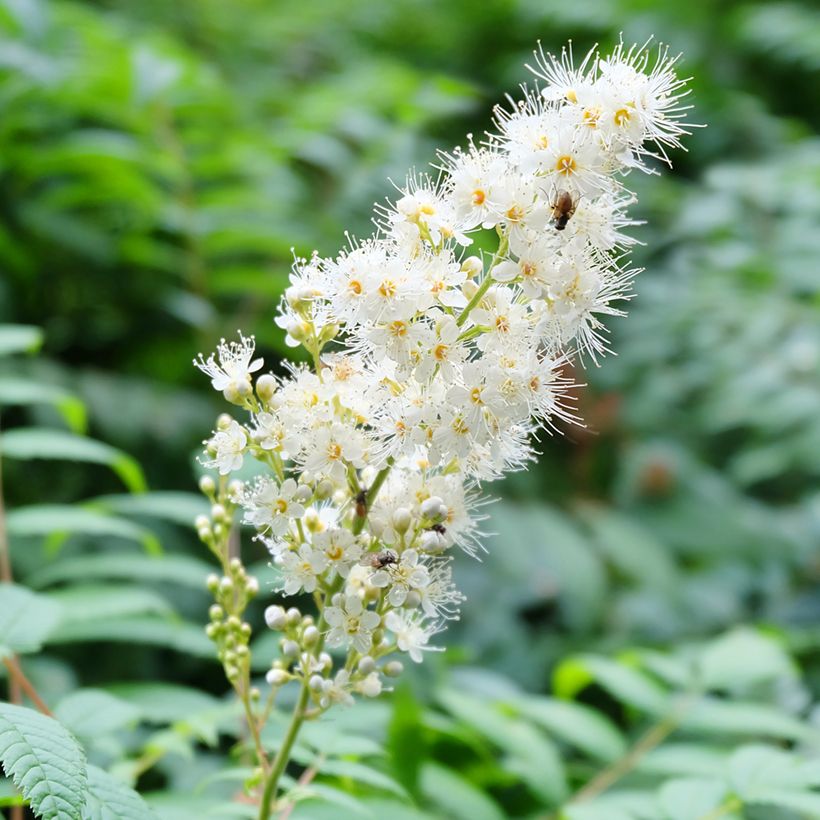

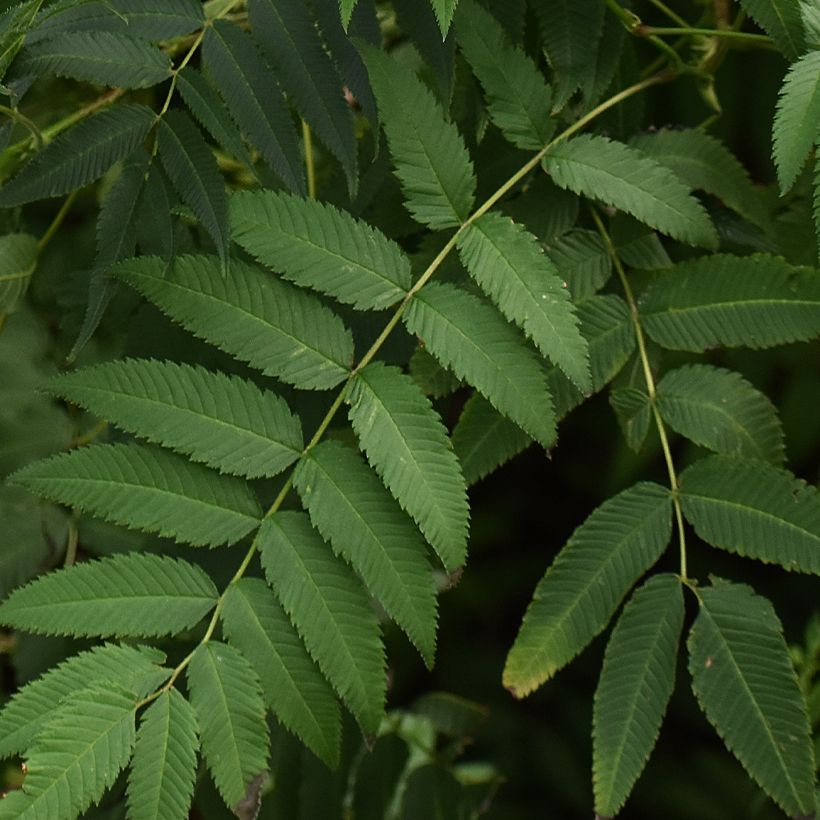

Plant habit
Flowering
Foliage
Botanical data
Sorbaria
tomentosa subsp. angustifolia
Stick & Feathers
Rosaceae
Narrow-leaved Himalayan Sorbaria
Himalayas
Other Sorbaria
Planting and care
Plant the Sorbaria tomentosa 'Stick & Feathers' in any good garden soil, neutral or slightly alkaline, reasonably rich, even with a clay tendency. This variety requires less water than the sorbaria with mountain ash leaves, and it withstands summer drought quite well once it is well-rooted. This bush thrives in full sun or partial shade, but the sun enhances the autumn colours of the foliage. This very cold-resistant bush blooms on the wood of the year, and you can prune it in late winter. You should watch out for the appearance of suckers, although this cultivar is not very invasive. Remove them easily with a garden fork.
Planting period
Intended location
Care
This item has not been reviewed yet - be the first to leave a review about it.
Striking foliage shrubs
Haven't found what you were looking for?
Hardiness is the lowest winter temperature a plant can endure without suffering serious damage or even dying. However, hardiness is affected by location (a sheltered area, such as a patio), protection (winter cover) and soil type (hardiness is improved by well-drained soil).

Photo Sharing Terms & Conditions
In order to encourage gardeners to interact and share their experiences, Promesse de fleurs offers various media enabling content to be uploaded onto its Site - in particular via the ‘Photo sharing’ module.
The User agrees to refrain from:
- Posting any content that is illegal, prejudicial, insulting, racist, inciteful to hatred, revisionist, contrary to public decency, that infringes on privacy or on the privacy rights of third parties, in particular the publicity rights of persons and goods, intellectual property rights, or the right to privacy.
- Submitting content on behalf of a third party;
- Impersonate the identity of a third party and/or publish any personal information about a third party;
In general, the User undertakes to refrain from any unethical behaviour.
All Content (in particular text, comments, files, images, photos, videos, creative works, etc.), which may be subject to property or intellectual property rights, image or other private rights, shall remain the property of the User, subject to the limited rights granted by the terms of the licence granted by Promesse de fleurs as stated below. Users are at liberty to publish or not to publish such Content on the Site, notably via the ‘Photo Sharing’ facility, and accept that this Content shall be made public and freely accessible, notably on the Internet.
Users further acknowledge, undertake to have ,and guarantee that they hold all necessary rights and permissions to publish such material on the Site, in particular with regard to the legislation in force pertaining to any privacy, property, intellectual property, image, or contractual rights, or rights of any other nature. By publishing such Content on the Site, Users acknowledge accepting full liability as publishers of the Content within the meaning of the law, and grant Promesse de fleurs, free of charge, an inclusive, worldwide licence for the said Content for the entire duration of its publication, including all reproduction, representation, up/downloading, displaying, performing, transmission, and storage rights.
Users also grant permission for their name to be linked to the Content and accept that this link may not always be made available.
By engaging in posting material, Users consent to their Content becoming automatically accessible on the Internet, in particular on other sites and/or blogs and/or web pages of the Promesse de fleurs site, including in particular social pages and the Promesse de fleurs catalogue.
Users may secure the removal of entrusted content free of charge by issuing a simple request via our contact form.
The flowering period indicated on our website applies to countries and regions located in USDA zone 8 (France, the United Kingdom, Ireland, the Netherlands, etc.)
It will vary according to where you live:
- In zones 9 to 10 (Italy, Spain, Greece, etc.), flowering will occur about 2 to 4 weeks earlier.
- In zones 6 to 7 (Germany, Poland, Slovenia, and lower mountainous regions), flowering will be delayed by 2 to 3 weeks.
- In zone 5 (Central Europe, Scandinavia), blooming will be delayed by 3 to 5 weeks.
In temperate climates, pruning of spring-flowering shrubs (forsythia, spireas, etc.) should be done just after flowering.
Pruning of summer-flowering shrubs (Indian Lilac, Perovskia, etc.) can be done in winter or spring.
In cold regions as well as with frost-sensitive plants, avoid pruning too early when severe frosts may still occur.
The planting period indicated on our website applies to countries and regions located in USDA zone 8 (France, United Kingdom, Ireland, Netherlands).
It will vary according to where you live:
- In Mediterranean zones (Marseille, Madrid, Milan, etc.), autumn and winter are the best planting periods.
- In continental zones (Strasbourg, Munich, Vienna, etc.), delay planting by 2 to 3 weeks in spring and bring it forward by 2 to 4 weeks in autumn.
- In mountainous regions (the Alps, Pyrenees, Carpathians, etc.), it is best to plant in late spring (May-June) or late summer (August-September).
The harvesting period indicated on our website applies to countries and regions in USDA zone 8 (France, England, Ireland, the Netherlands).
In colder areas (Scandinavia, Poland, Austria...) fruit and vegetable harvests are likely to be delayed by 3-4 weeks.
In warmer areas (Italy, Spain, Greece, etc.), harvesting will probably take place earlier, depending on weather conditions.
The sowing periods indicated on our website apply to countries and regions within USDA Zone 8 (France, UK, Ireland, Netherlands).
In colder areas (Scandinavia, Poland, Austria...), delay any outdoor sowing by 3-4 weeks, or sow under glass.
In warmer climes (Italy, Spain, Greece, etc.), bring outdoor sowing forward by a few weeks.

































